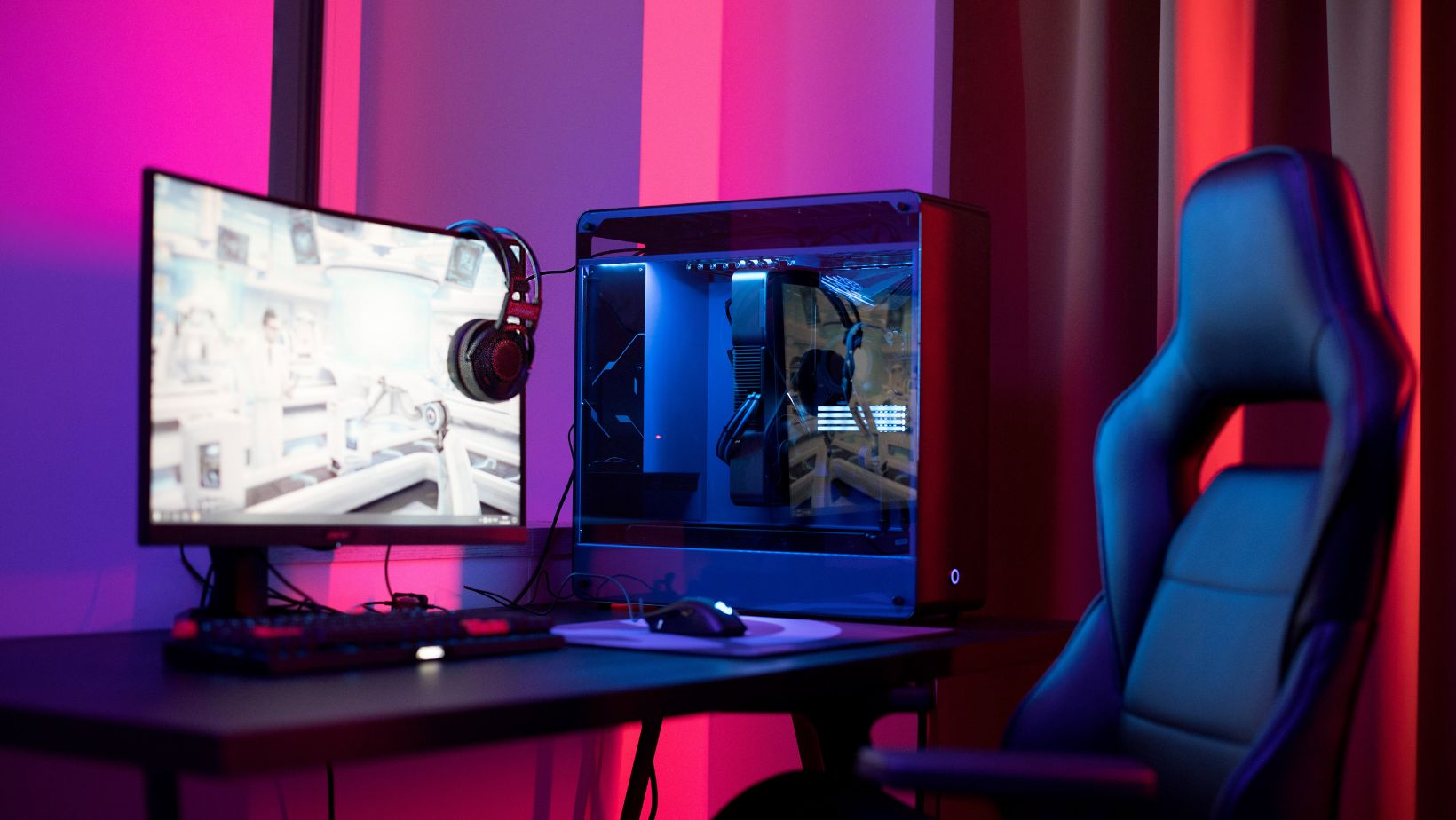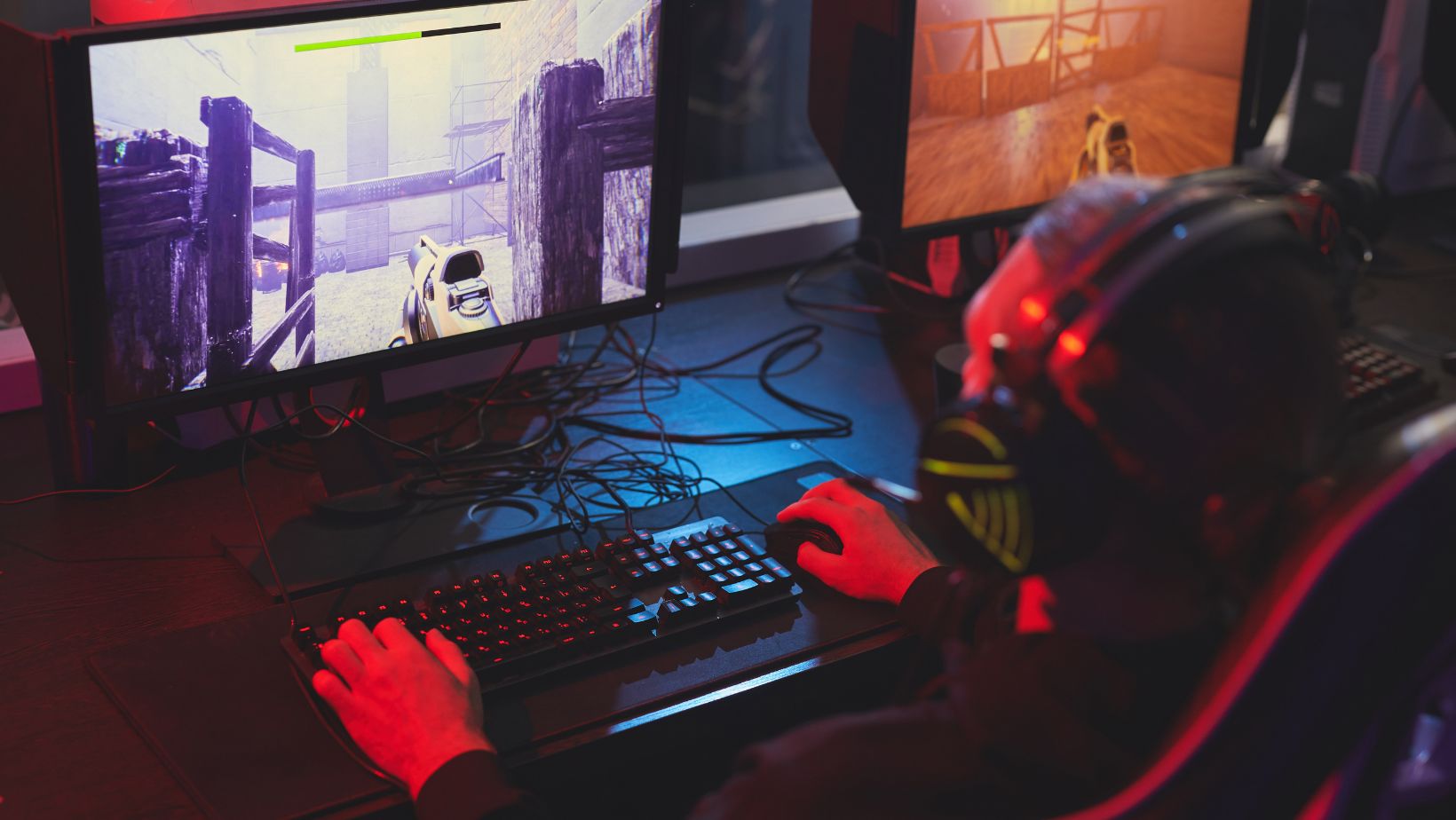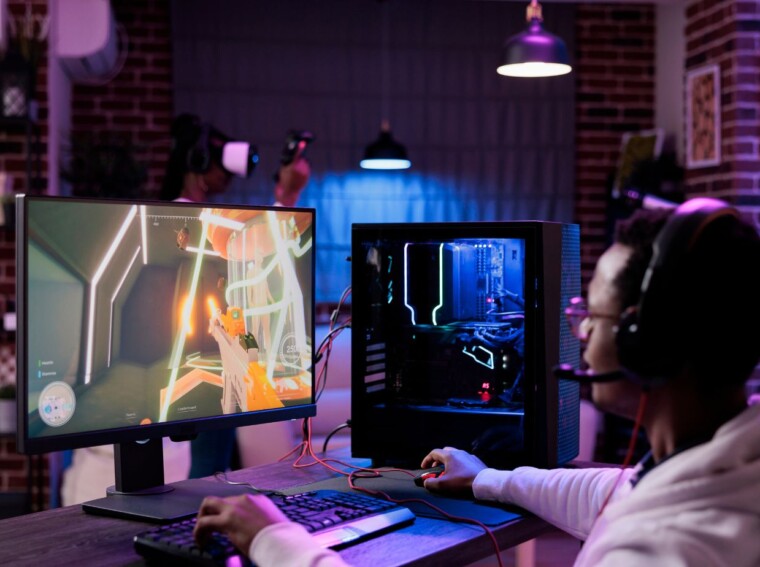When buying a new PC, what matters the most? The answer to this question depends on the user. Almost any PC can do routine activities. However, when it comes to gaming, specific hardware and software components are a must-have. Even more, depending on the game, benchmark requirements exist to enjoy a smooth gaming experience.
One of gaming PCs’ crucial and most popular components is the graphics processing unit (GPU). Modern games are evolving and tending towards creating a more realistic experience. The graphics card is responsible for rendering the display. It determines the frame which is needed for smooth gameplay. Other components include the RAM, CPU, storage, motherboard, cooling system, and monitor.
Whether you are a newbie or an experienced gamer, this article is very handy. So, read on as we explore some critical components that can affect you when playing games on your PC.
Graphics Processing Unit (GPU)
GPU is the most critical component of any gaming PC. So, whatever you do, never settle for anything less, especially if you are a heavy gamer. The GPU determines what you see, when, and how you see it. It processes images, sends them to the CPU, and then transmits them to the monitor. The GPU determines the frame rates, measured in Frames Per Second (FPS). So, as you go from 15 FPS to 60 FPS or higher, the display quality is a massive difference.
With higher GPUs, your PC can handle anything thrown at it. This is mostly needed for high-end games like God of War, Final Fantasy, and Far Cry 6. However, if you are a fan of play-to-earn crypto games like Decentral Land or pokies like the ones on these Australian online casinos, then you don’t need the high-end GPUs. These games are straightforward to play and only require minimal hardware components. Only live games like blackjack and poker require a bit more, owing to the live streaming and HD graphics involved.
Irrespective of the game type, you want your PC to stay on track and run smoothly. Ardent gamers will understand that it can be very frustrating. Currently, Nvidia ranks at the top as the best manufacturer of graphics cards. Although the RTX 40-series is the best version for high-end gamers, it is expensive. Other options include the AMD Radeon RX series, which is available in different configurations and prices.
Central Processing Unit (CPU)
If the GPU is likened to the human eye, the CPU is the brain. You would agree that the brain controls almost every activity in the body. So it is for a gaming PC. The CPU handles complex instructions, processes them, and relates the data to the respective component.
A crucial aspect of the fastest CPUs is the core count. How many cores are sufficient for an efficient gaming experience? Indeed, more than one is needed, but it also depends on the game requirements. Most modern PCs have multiple cores that allow seamless processing of instructions. The trend has gone from single and dual-core to up to 10 or more CPU cores.

With multiple cores, you can play high-demanding games with ease. The latest generation Intel core i7 and i9 PCs fit into this category of high-end CPUs. It can impact the processing time of information, which will, in turn, affect your overall gaming experience.
RAM Size
The size of your PC’s RAM (Random Access Memory) can affect your gaming experience. The RAM is a transitional, short-term storage space for operational data. It is a space that temporarily stores the information your computer needs to function correctly. So, if the RAM size is small, it means there is a limit to the data it can hold. When that happens, accessing and processing information takes more time, which can affect your gaming experience.
Modern PCs now use SSD (Solid State Drive) instead of HDD (Hard Disk Drive). The former offers more benefits like speed and less power consumption. There is also the DDR4 (Double Data Rate 4) and SDRAM (Synchronous Dynamic Random Access Memory). With a bigger capacity, the data is stored temporarily, thus making it readily accessible. It also affects multi-tasking. With ample temporary storage, switching between applications without exiting them each time is possible.
Particularly for Windows PCs, the minimum recommended RAM size for a gaming PC is 16 GB. If you run heavy applications, consider upgrading it to 32 GB or even 64 GB. That way, you have nothing to worry about when using your PC for gaming.
Storage Space
Does the type and capacity of your storage space affect your gaming experience? The answer is yes. First, performance is considerably different when your storage space is an HDD or SSD. For a gaming PC, you must stay away from HDD because of its mechanical mode of operation. Besides its slower data transfer speed, it generates more heat, which could be better while gaming. Furthermore, there is also the possibility of fragmentations, which can affect performance.

SSDs, on the other hand, have faster read and write speeds. Games load and run faster on SSD. However, there are also questions of how much space is deemed to be sufficient. Most games are huge files requiring massive storage space for installation and smooth running. A minimum of 512 GB SSD is a good start. However, it is recommended to get higher storage.
In some new generations of computers, internal storage is also used as the virtual RAM. It means that when the allocated RAM is full, a part of the storage space will be dedicated to ensure the smooth running of the PC. Hence, it is crucial always to have enough space available.
Cooling System
Gaming is a very intensive activity that can generate a lot of heat. Most gaming PCs are designed with exceptional cooling and ventilation systems to avoid overheating and throttling. Some PCs overheat when handling high-end games, which could result in lagging. In the worst cases, it could damage other components.


